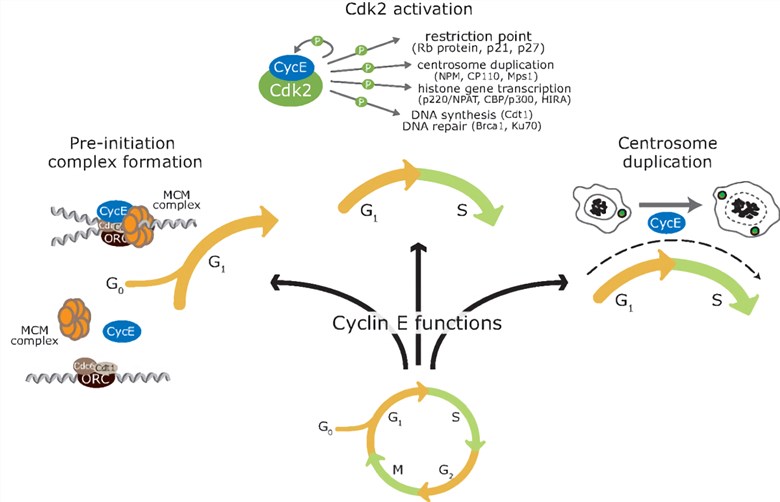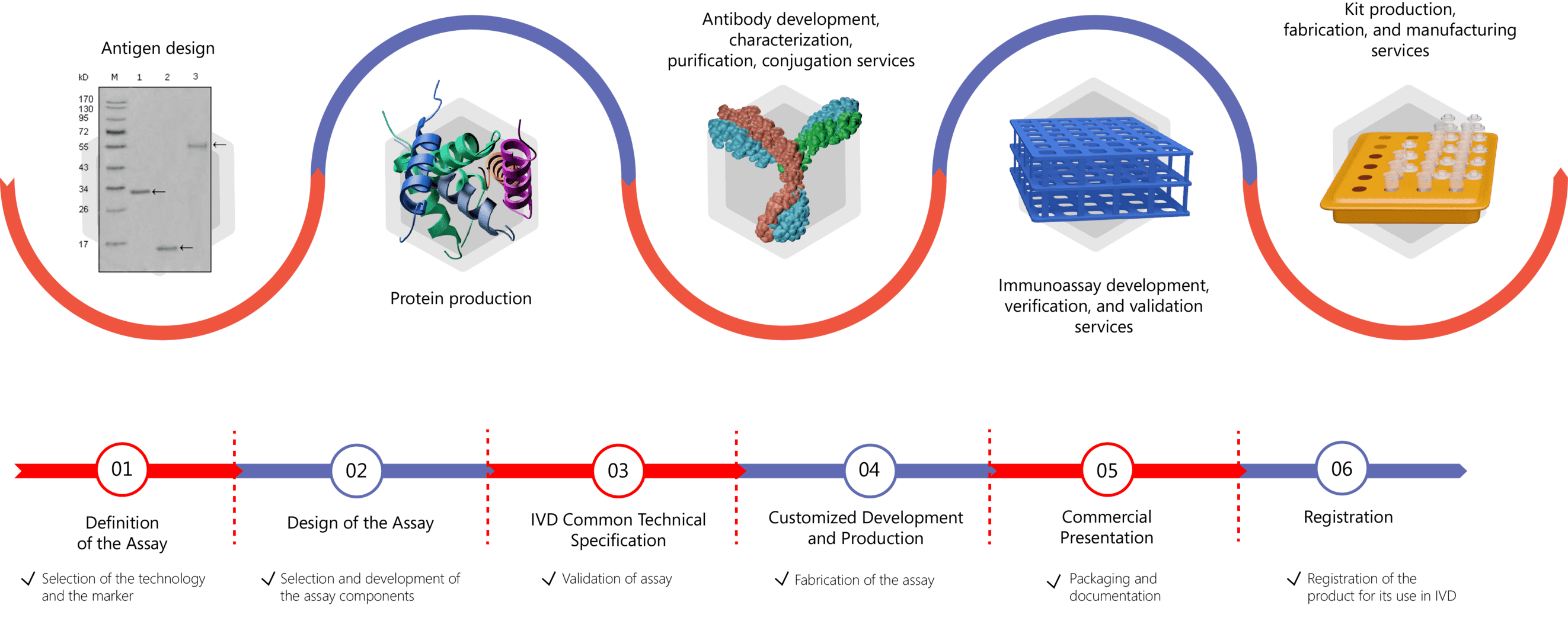Creative Biolabs, a world-leading service provider in the field of antibody discovery and generation, is proud to launch our high-quality in vitro diagnostic (IVD) antibody & immunoassay development services to global clients. Especially, we introduce Cyclin E as a potential prognostic marker of breast cancer.
Introduction to Cyclin E
Cyclin E, a member of the cyclin family, is a target of the E2F transcription family. Cyclin E has two isoforms, i.e. cyclin E1 and cyclin E2, which are encoded by two different genes with 47% homology. This protein binding to G1 phase CDK2 regulates the transition from G1 to S phase of the cell cycle which determines initiation of DNA duplication. Cyclin E/CDK2 has been revealed to phosphorylate numerous downstream proteins, such as retinoblastoma protein (Rb), p27, p21, Smad3, CBP/p300, E2F-5, and p220 (NPAT), thereby regulating multiple cellular processes. For example, Smad3 is a key mediator of the TGF-β pathway which inhibits cell cycle progression. It can be phosphorylated by cyclin E/CDK2 to facilitate cell cycle progression. Also, cyclin E/CDK2 is also involved in the regulation of the centrosome cycle. The phosphorylated nucleophosmin (NPM) mediated by CDK2/cyclin E can be released from binding to an unduplicated centrosome, thereby triggering duplication.
 Fig.1 Cyclin E in cell cycle progression.1
Fig.1 Cyclin E in cell cycle progression.1
Cyclin E Marker for Cancer Prognosis
Studies have reported that Cyclin E is associated with tumorigenesis, involved in the progression of various types of cancer including breast, colon, bladder, skin, and lung cancer. It has been reported that Cyclin E is a prognostic marker of breast cancer and its expression pattern changes with the increase of tumor stage and grade. In 18-22% of the breast cancer cases, dysregulation of cyclin E occurs. Cyclin E isoforms with low molecular weight have been revealed to be involved in the pathogenetic mechanism of breast cancer and are regarded as very important prognostic markers. Besides, Cyclin E is also a significant marker for the prognosis of early-stage-node negative breast cancer.
IVD Antibody & Immunoassay Development Services Provided by Creative Biolabs
Since Cyclin E has been identified as a promising prognostic biomarker for breast cancer, qualitative and quantitative alterations of Cyclin E are considered as indicators of the deterioration of prognosis of breast cancer. Creative Biolabs is a trusted partner for the development of IVD antibodies and different types of immunoassay, with different technologies. We help to develop high-quality antibody-based immunoassays to provide sensitive and rapid tools for Cyclin E detection in biological samples. For more detailed information about what we offer for each stage of the development process, please click the links below:
- IVD Antibody Development
- Antibody Pair Development
- Antibody& Protein Conjugation
- IVD Immunoassay Development

Please feel free to contact us for more information and discuss your project needs.
Reference
- Caldon, C. Elizabeth, and Elizabeth A. Musgrove. "Distinct and redundant functions of cyclin E1 and cyclin E2 in development and cancer." Cell division 5 (2010): 1-13. Distributed under Open Access license CC BY 2.0, without modification.
For Research Use Only.